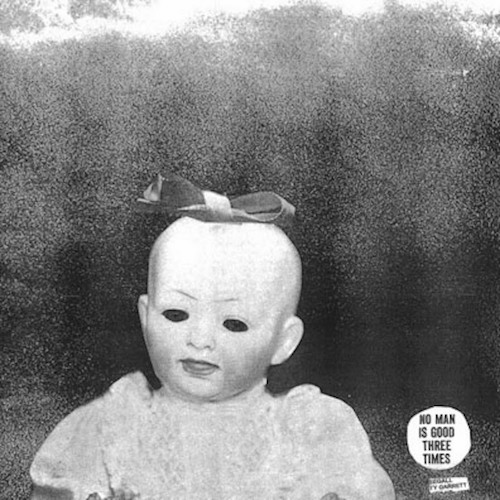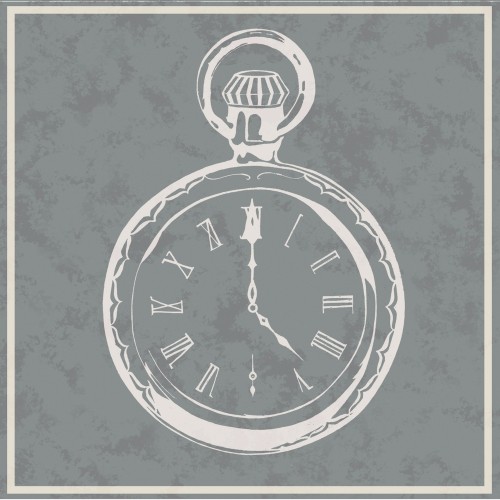 Release Date: February 19th, 2013
Release Date: February 19th, 2013





Making a living in Americana has to be difficult in the post-Devendra Banhart and Joanna Newsom universe. The fearless freaks of the San Francisco folk scene, and to a lesser extent the ascent of poet of the back porch, Sam Beam, have delineated a clear marker between what could reductively be titled “retro folk” and the eccentric “freak folk,” saying nothing of the tremendous gray area between.
Samantha Crain should know about this gulf; she exists in it, after all. A Choctaw Oklahoman residing on North Carolina label Ramseur Records, Crain is a neat fit between the worlds of traditional guitar-based folk and the freaky experimentation of her contemporaries. Her second album, Kid Face, straddles this line as well, although not as well as some of her more glowing supporters may suggest.
While Crain has an impressive voice and a songsmith’s wit, her reticence to fully embrace eccentricity leaves Kid Face slightly blunted and dull.
Kid Face is a frequently gorgeous and intimate album, though. Crain’s voice immediately darts out from the opening salvos of “Never Going Back” and “Taught to Lie.” She gets somewhat rightly compared to Newsom in her intonation: simultaneously lilting and perfectly pitched, with moments of winsome squelch.
Yet songs like the title track reveal Crain’s alto to be swaddled in a sweeter depth, something the frequently piquant Newsom could only hope for when reaching into her low register. A more apt comparison might be the more pop-oriented dulcet tones of Rachel Yamagata, who frequently rose above her more modest sonic surroundings to plumb more intimate details of songs with her voice.
Crain does her best to dig into these moments of poignancy, but often falls short of the mark due to one safe turn after another. The country two-step of “Somewhere All the Time” turns into a messy Sheryl Crow impersonation because Crain can’t manage to force anything original from the basic guitar/drum framework. It’s one thing to appear to be self-sufficient, but another to make something personal from that individuality.
The album’s best track, the effortless, whispering “Churchill” takes one of Crain’s most powerful laments (“So blame me for what I cannot finish/my whole life I thought I was an opportunist/but I’m not”) and builds resignation through undercurrents of bass and only momentary bursts of slide. Similarly well done cuts cop a bit too much from other artists. “Paint” could very easily be a Marissa Nadler B-side, and “The Pattern Has Changed” comes straight from the basic female singer-songwriter piano ballad manual.
Thankfully, one thing Crain avoids more often than not is the need to ground all of her narratives in a romantic other. It’s clear that she wants to be a more individual lyrical voice; “The Pattern Has Changed” and its last verse gives this away a bit too bluntly. Self-discovery is well trodden ground, and again Crain sets aside large portions of the trite indie-isms or ironic damsel-in-distress tunes that can cause a lesser artist to falter. “I’m not mad/I’m conflicted,” from the plaintive finale “We’ve Been Found,” hints that Crain wants more from her narratives. She just might not be there yet.
Because of how difficult the folk scene can be for women, Samantha Crain is in a bit of a rough spot in terms of finding a cache.
Technically speaking, she is immensely talented, with a sorrowful, classic voice that most of her contemporaries, Newsom included, could only dream of having intrinsically.
She may yet find her footing in some of the more stellar, idiosyncratic, or original ideas on Kid Face like “Churchill” or “Ax,” but for the time being, Samantha Crain remains an interesting folk prospect, capable of taking a giant qualitative leap with just a few slight tweaks.
Samantha Crain – Kid Face Tracklist
- Never Going Back
- “Taught to Lie”
- “Paint”
- “For the Miner”
- “The Pattern Has Changed”
- “Churchill”
- “Kid Face”
- “Somewhere All the Time”
- “Ax”
- “Sand Paintings”
- “We’ve Been Found”


